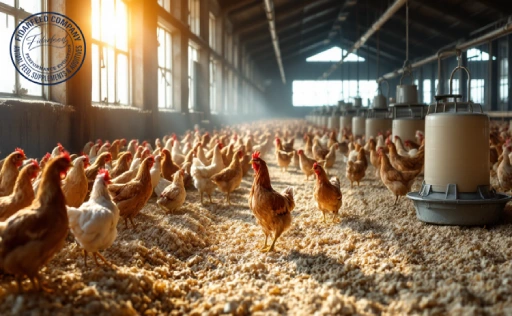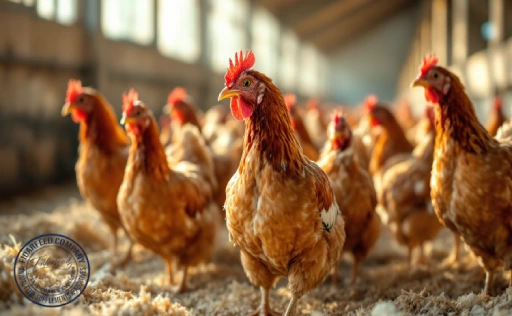
Animal Feed Additives have become one of the most important tools in modern animal husbandry. For breeders and industry professionals alike, the right use of additives can make the difference between average performance and exceptional productivity. Whether you raise poultry, livestock, aquaculture species, or pets, understanding what feed additives are and how they can be used effectively is essential. This guide will walk you through everything you need to know, from definitions and types to practical applications and future innovations.
What Are Animal Feed Additives and Why Do They Matter?
At their core, animal feed additives are substances intentionally added to feed to improve its quality, enhance animal health, and boost productivity. While traditional feed ingredients like corn, soybean meal, and grains provide the basic nutrients, additives give animals an extra edge by filling nutritional gaps or supporting specific physiological functions.
Learn more about: Alternative Feed Ingredient
For breeders, this means healthier animals that grow faster, resist disease more effectively, and produce higher yields of meat, milk, or eggs. For pets and aquaculture, additives ensure vitality, better digestion, and improved performance. Simply put, additives matter because they optimize feed efficiency, save costs in the long run, and support animal welfare.

The Main Types of Animal Feed Additives Explained
Understanding the different categories of feed additives helps breeders make informed decisions. Additives can be divided into four main groups:
-
Nutritional Additives – These provide essential nutrients such as vitamins, amino acids, and minerals that might be missing from standard feed. For example, lysine and methionine are amino acids commonly added to improve protein utilization.
-
Sensory Additives – These improve the taste, smell, or appearance of feed, encouraging animals to eat more consistently. Flavorings or color enhancers are examples that stimulate appetite, especially in young or stressed animals.
Learn more about: biotechnology in animal feeds and animal feeding
-
Technological Additives – These improve the processing and storage qualities of feed. Preservatives prevent spoilage, while binders and emulsifiers improve texture and pellet quality.
-
Zootechnical Additives – These directly improve animal performance and health. Probiotics, enzymes, and gut flora stabilizers fall into this category, supporting digestion and nutrient absorption.
Each type of additive has a clear purpose, and combining them strategically can deliver excellent results for breeders.
How Animal Feed Additives Improve Growth and Health
The benefits of animal feed additives go beyond faster growth. Additives address multiple aspects of animal well-being, which in turn affects productivity. For instance:
-
Better digestion – Enzymes like phytase help animals break down otherwise indigestible components in feed, releasing more nutrients.
-
Stronger immunity – Probiotics and prebiotics enhance gut health, which is closely tied to immune function. This means fewer illnesses and reduced reliance on antibiotics.
Learn more about: Affordable zeolite feed additive: Your Guide to High-Quality, Low-Cost Options
-
Improved weight gain and productivity – With balanced nutrition and optimized digestion, animals grow faster and produce more efficiently.
-
Disease resistance – Certain additives such as antioxidants reduce oxidative stress, helping animals cope with environmental and nutritional challenges.
For breeders, this translates into healthier herds, better economic returns, and peace of mind knowing their animals are thriving.

Common Examples of Animal Feed Additives Used by Breeders
To make the concept more practical, here are some widely used additives in different sectors of animal farming:
-
Vitamins – Essential for metabolic processes, reproduction, and growth. Vitamin A supports vision and immunity, while Vitamin D is vital for bone development.
-
Minerals – Elements like calcium, phosphorus, zinc, and selenium are critical for skeletal health, reproduction, and immunity.
-
Enzymes – Such as xylanase and cellulase, which improve the breakdown of plant fibers, increasing nutrient availability.
Learn more about: Immune Boosters for Shrimp: What Additives Actually Work?
-
Probiotics – Live microorganisms that promote gut health and support digestion.
-
Antioxidants – Compounds that prevent the oxidation of fats in feed and reduce oxidative stress in animals.
Breeders often use a tailored combination of these additives depending on the species and stage of production.
Choosing the Right Animal Feed Additives for Your Livestock
Selecting the right additive requires careful consideration. The wrong choice—or incorrect dosage—can reduce effectiveness or even harm animals. Here are key factors to guide your decision:
-
Species-specific needs – Poultry, ruminants, aquaculture, and pets each require different additives. For example, ruminants benefit more from certain mineral supplements than monogastric animals.
-
Age and growth stage – Young animals often need extra support for bone development and immunity, while mature ones may require additives that enhance production performance.
Learn more about: Everything You Need to Know About Wholesale Feed Additives
-
Production goals – Whether your aim is faster growth, higher milk yield, or better reproductive performance, the choice of additives will vary.
-
Scientific backing – Always rely on additives with proven effectiveness supported by credible research.
Breeders, whether new or experienced, should consult reliable resources and, when possible, expert guidance to make informed choices.

Safe Use of Animal Feed Additives: What Breeders Should Know
While feed additives offer many benefits, responsible use is critical. Overuse or misuse can cause health issues in animals and financial losses for breeders. Here are important safety guidelines:
-
Follow dosage instructions carefully – Every additive has an optimal level. More is not always better.
-
Understand regulations – Many additives are regulated to ensure safety for animals and consumers. Always stay updated with standards relevant to your industry.
Learn more about: Organic Additives for Healthier Farmed Salmon
-
Monitor animal response – Observe animals for signs of improved performance or potential side effects after introducing a new additive.
-
Ensure quality sourcing – Only use additives from trusted suppliers that provide product guarantees and documentation.
By applying these principles, breeders safeguard both their animals and their investment.
Future Trends in Animal Feed Additives You Should Watch
The feed industry is evolving rapidly, with research continuously uncovering new solutions. Some of the key trends shaping the future include:
-
Natural additives – Rising demand for antibiotic-free and chemical-free products has fueled interest in plant extracts, essential oils, and organic acids.
-
Sustainability – Additives that reduce methane emissions in ruminants or improve nutrient absorption help minimize the environmental impact of farming.
-
Precision nutrition – With advanced technology, additives can now be tailored to meet the exact nutritional requirements of individual species, reducing waste and maximizing efficiency.
Learn more about: Top Bentonite Manufacturers for Animal Feed: What to Look For
Staying informed about these developments gives breeders an advantage in adopting innovative practices early.

Final Thoughts: Making the Most of Animal Feed Additives
Animal Feed Additives are more than just “extras” in the diet. They are powerful tools that support growth, health, and efficiency in every branch of animal farming. From vitamins and minerals to enzymes and probiotics, the right combination of additives helps breeders achieve better results while promoting animal welfare.
For both new and experienced breeders, the key lies in understanding your animals’ needs, choosing wisely, and applying additives safely. With knowledge and careful management, you can boost productivity, improve animal health, and optimize your farm’s long-term success.
We’d love to hear from you—what has been your experience with feed additives? Share your thoughts, ask questions, or leave a comment below to join the conversation.



